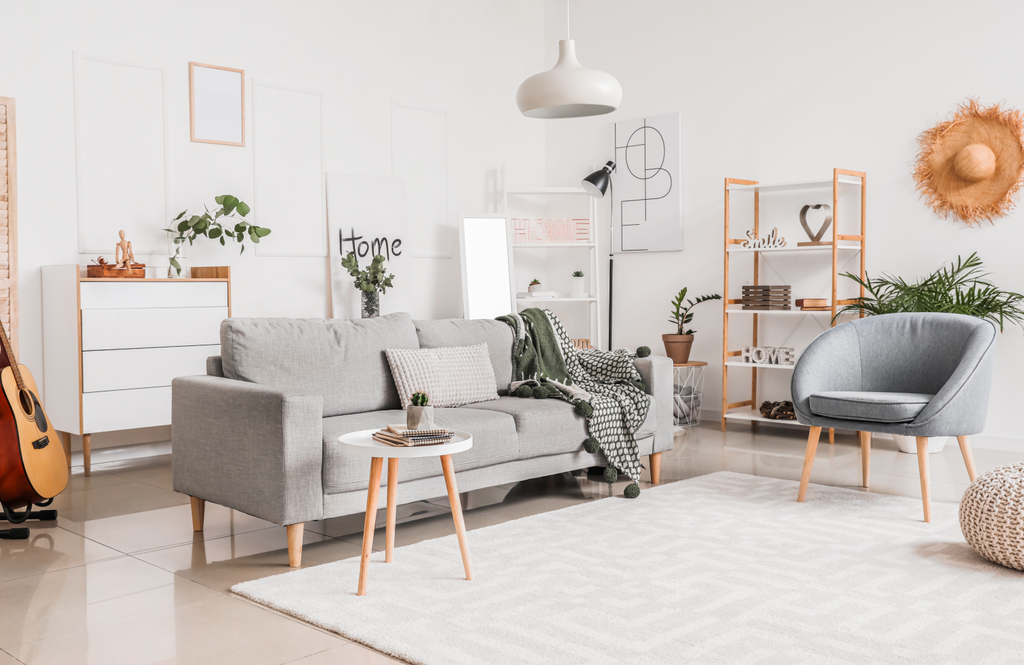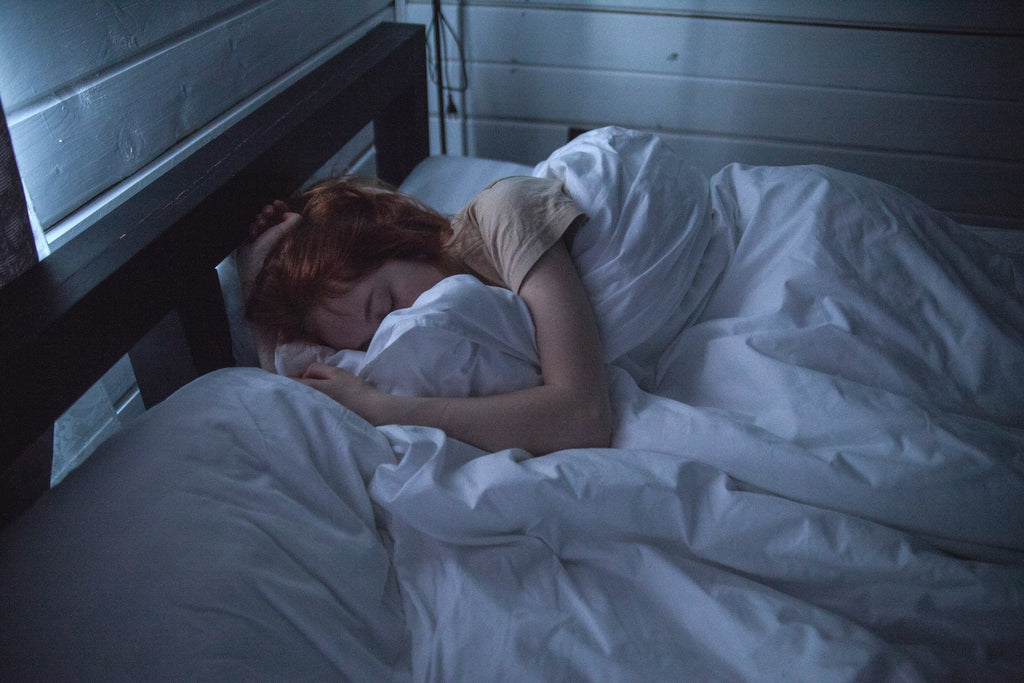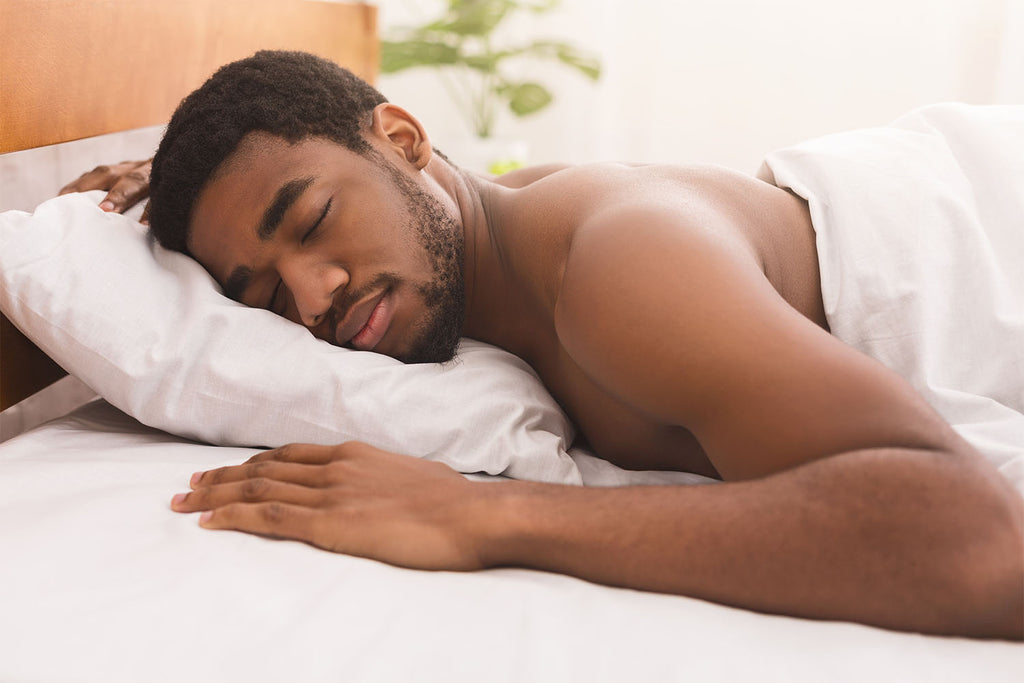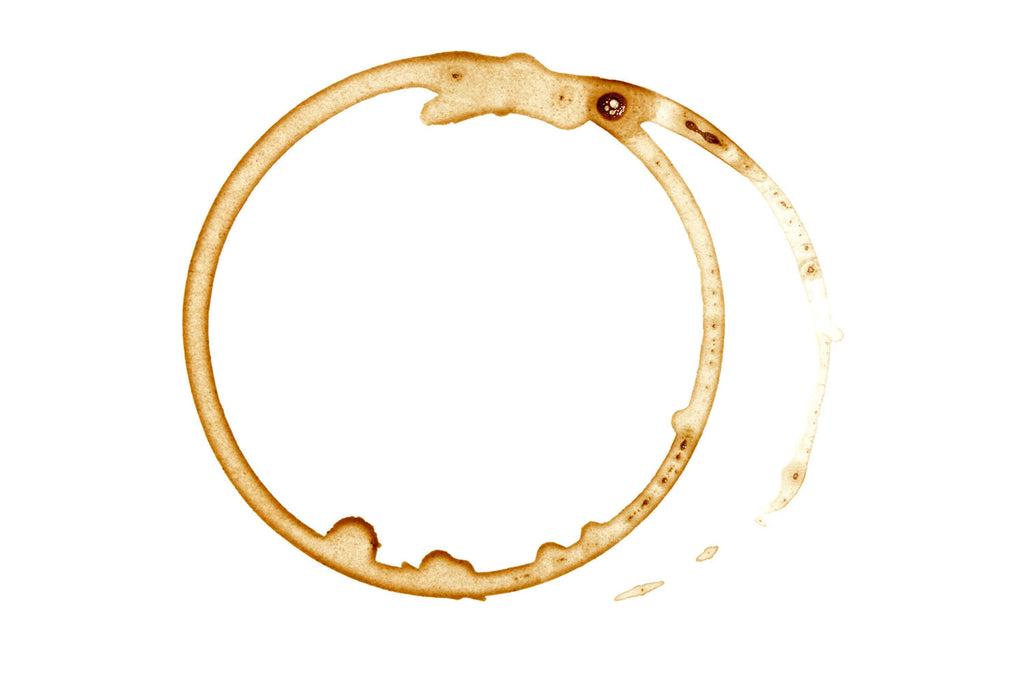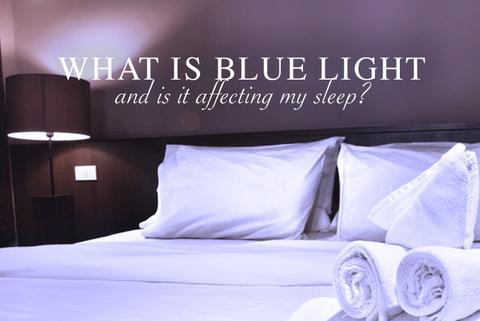
What is Blue Light and is it Affecting My Sleep?

Are you having troubles getting to sleep, staying asleep, or waking up on time? There are hundreds of factors that could be causing you to have trouble getting some shut eye, but there is a new scourge on your sleep that was ushered in with the technological revolution: Blue Light. So, if you’re asking what is blue light and how is it affecting my sleep, we have some answers for you!
When you think of light, you normally think of the bright, white light that emanates from most standard light bulbs. If you remember back to your high school physics class, white light is light that contains a fairly decent balance of all of the colors on the visible spectrum. Light can be tinted to any visible color and, according to a recent study by a team at Harvard Medical School, that color can have an effect on your health. The team launched their study to discover the extent of the effects of the blue tinted light from electronic screens on the human body.
What is Blue Light?
Blue light is light that contains a heavier concentration of cool tones. This light generally comes from more energy-efficient light sources, though the main culprits are LED bulbs, energy efficient fluorescent bulbs, and electronic screens. With the amount of time each day that many of us spend on them, cell phone and tablet screens are going to be the most common source of blue light exposure.
The Harvard team discovered what many others have theorized before; Exposure to blue light at night does affect sleep. They built upon the research of Dr. Charles Czeisler, where he discovered that the human body goes through what he called the “circadian rhythm”. This is a cycle lasting roughly 24 hours that dictates when we should be asleep and when we should be awake. This cycle is normally determined by the sun’s light, triggering sleeping and waking hours by its presence. Blue light acts as an artificial source of sunlight that suppresses the release of melatonin into our system.
Is Blue Light Affecting me Negatively?
So exposure to blue light at night changes our sleep cycles, but is that bad? According to the research team at Harvard, the short answer is “yes”. It has proven to trigger your body to believe that it is still daytime. While exposure to this light during the day can be beneficial, exposure at night keeps your body awake and alert. You will find it much harder to fall asleep after staring at your cell phone and this lack of sleep adds up over time. It may cause depression, obesity, diabetes, and certain cardiovascular problems. The team also discovered preliminary evidence that linked the suppression of melatonin to cancer.
How to Battle Blue Light
The good news is that it is pretty easy to avoid cool tones from light sources at night. Many newer models of cell phones and tablets have built-in blue light filters. On Android, a “blue light filter” option can be found in the pull-down menu at the top of the screen. iPhone users with iPhone 5s or later can enable “night shift” mode under their display and brightness settings. For older model cell phones, there are quite a few options for filtering apps available on the Google and Apple app stores. For late-night keyboard warriors, you can download a free copy of the blue light filtering software “f.lux” for Windows, macOS, and Linux. You can also install warmer light bulbs or multi-tone smart lights to ensure that your home is a more relaxing environment at night. As a last resort, there are always blue light filtering glasses.
The studies linking a lack of melatonin to health risks like diabetes and depression are still in the early stages, but the signs are pointing toward a definite correlation. Until we know more, the team at Harvard Medical School recommends limiting night time exposure to blue light sources. Keep your sleep cycles in order by avoiding or suppressing your blue light intake.
One of the first keys to a healthy lifestyle is getting the amount of sleep that your body needs, so don't let your electronic devices take over. Do you use any of these methods to control blue light? Comment below!
